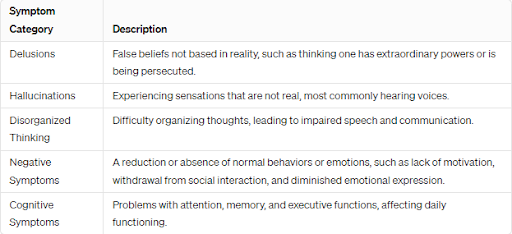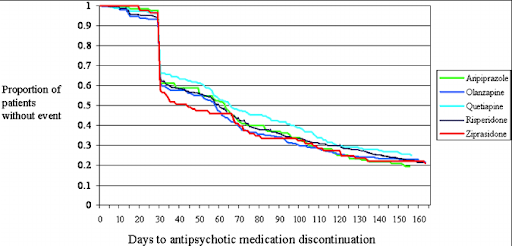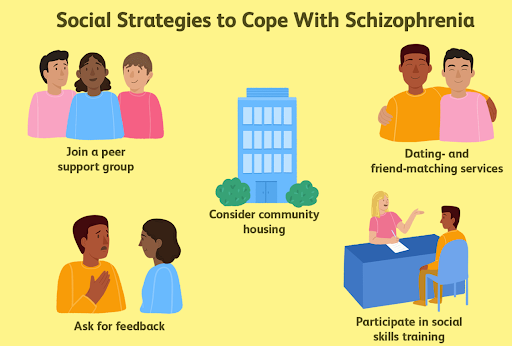Undifferentiated Schizophrenia: 5 Essential Facts to Know

What is Undifferentiated Schizophrenia?
Undifferentiated schizophrenia is a classification used when an individual exhibits symptoms of schizophrenia that do not clearly fit into the other established subtypes, such as paranoid, disorganized, or catatonic schizophrenia. This subtype is characterized by a blend of symptoms that make it challenging to categorize the condition more specifically. The diagnosis of undifferentiated schizophrenia is pivotal in the realm of psychiatric care, as it acknowledges the complex and varied nature of schizophrenia, a mental disorder marked by profound disruptions in thinking, feeling, and behavior, affecting a person’s ability to discern reality.
Symptoms and Diagnosis of Undifferentiated Schizophrenia
Symptoms

The symptoms of undifferentiated schizophrenia encompass a wide range, reflecting characteristics of multiple schizophrenia subtypes without adhering strictly to one category. Key symptoms include:
Delusions: False beliefs that are not based in reality, such as thinking one has extraordinary powers or is being persecuted.
Hallucinations: Experiencing sensations that are not real, most commonly hearing voices.
Disorganized Thinking: Difficulty organizing thoughts, leading to impaired speech and communication.
Negative Symptoms: A reduction or absence of normal behaviors or emotions, such as lack of motivation, withdrawal from social interaction, and diminished emotional expression.
Cognitive Symptoms: Problems with attention, memory, and executive functions, affecting daily functioning.
Having Problems With Schizophrenia?
Get Help from Experts from the Comfort of Home
Diagnosis
Diagnosing undifferentiated schizophrenia involves a comprehensive evaluation, including a detailed psychiatric assessment and medical history. The Diagnostic and Statistical Manual of Mental Disorders, 5th Edition (DSM-5), provides criteria for schizophrenia diagnosis, which must include the presence of two or more of the aforementioned symptoms, with at least one being delusions, hallucinations, or disorganized speech.
Symptoms must persist for at least six months, with significant impairment in social or occupational functioning. The diagnosis of the undifferentiated subtype is considered when symptoms do not exclusively align with the criteria for the other subtypes.
The process also involves ruling out other potential causes of symptoms, such as substance abuse, medication side effects, or other medical conditions. A thorough diagnostic evaluation is crucial for developing an effective treatment plan tailored to the individual’s specific needs and symptoms.
Treatment Options for Undifferentiated Schizophrenia

Managing undifferentiated schizophrenia requires a comprehensive, multidisciplinary approach tailored to the individual’s symptoms and needs. Treatment typically involves a combination of medication, psychotherapy, and supportive services aimed at reducing symptoms and improving function
Medication
- Antipsychotics: The cornerstone of treatment for undifferentiated schizophrenia, antipsychotic medications can significantly reduce symptoms such as hallucinations, delusions, and disorganized thinking. Both first-generation (typical) and second-generation (atypical) antipsychotics are used, with the choice of medication depending on the patient’s symptom profile and side effect tolerance.
- Adjunctive Medications: In some cases, additional medications may be prescribed to address specific symptoms or medication side effects, including antidepressants, mood stabilizers, or anti-anxiety medications.
Psychotherapy
- Cognitive Behavioral Therapy (CBT): CBT can help patients recognize and change harmful thought patterns and behaviors, improving coping mechanisms for dealing with symptoms.
- Family Therapy: Involving family members in therapy sessions can provide them with the tools to support their loved one effectively, improving communication and reducing relapse rates.
- Social Skills Training: This therapy focuses on improving communication and social interaction skills, enhancing the patient’s ability to function in social and occupational settings.
Supportive Services
- Case Management: Case managers can assist patients in accessing medical, social, and educational services, facilitating comprehensive care.
- Vocational Rehabilitation: These programs help individuals with schizophrenia find and maintain employment, promoting independence and self-sufficiency.
- Community Support Groups: Support groups offer a platform for patients and families to share experiences, offering mutual support and understanding.
Living with Undifferentiated Schizophrenia: Coping Strategies

Living with undifferentiated schizophrenia presents unique challenges, but effective coping strategies can enhance quality of life and foster recovery.
Adherence to Treatment: Consistently following the treatment plan, including medication and therapy sessions, is crucial for managing symptoms.
Healthy Lifestyle: Regular physical activity, a balanced diet, and adequate sleep can positively affect mental health and well-being.
Stress Management: Techniques such as mindfulness, meditation, and relaxation exercises can help manage stress, reducing the impact of symptoms.
Education: Learning about schizophrenia can empower patients and families, helping them understand the condition and advocate for effective care.
Social Support: Maintaining connections with family, friends, and support groups can provide emotional support and reduce feelings of isolation.
Developing a Routine: A structured daily routine can provide stability and predictability, helping to manage symptoms.
Supporting Someone with Undifferentiated Schizophrenia
Supporting a loved one with undifferentiated schizophrenia is a journey that requires patience, understanding, and a proactive approach to care. Here are strategies to effectively support someone dealing with this condition:
Educate Yourself: Understanding undifferentiated schizophrenia is the first step in providing support. Knowledge about the condition helps in recognizing symptoms, understanding treatment options, and knowing how to respond to various situations.
Encourage Treatment Adherence: Support your loved one in adhering to their treatment plan, including medication and therapy sessions. Gentle reminders and positive reinforcement can be helpful.
Provide Emotional Support: Listen actively and offer empathy. Being there for your loved one, even in silence, can be a powerful form of support.
Help Establish a Routine: Assist in creating a structured daily routine. This can help manage symptoms and provide a sense of stability.
Promote Independence: Encourage activities that promote independence and self-care, adjusting the level of support as needed based on their current state.
Seek Support for Yourself: Caring for someone with schizophrenia can be challenging. Seek support from healthcare professionals, support groups, or counseling to manage stress and prevent caregiver burnout.
Future Directions in Treatment and Research
The field of schizophrenia research is continually evolving, with ongoing studies aimed at improving understanding, treatment, and management of the condition. Future directions include:
Personalized Medicine: Advances in genetics and neurobiology may lead to more personalized treatment approaches, tailoring interventions to individual genetic profiles and disease mechanisms.
New Therapeutic Targets: Research into the neurobiological underpinnings of schizophrenia is uncovering new potential targets for medication, offering hope for more effective treatments with fewer side effects.
Digital Health Interventions: Technology-based interventions, such as mobile apps for symptom monitoring and teletherapy, are expanding access to care and support.
Preventive Strategies: Identifying and intervening in high-risk individuals before the onset of full-blown schizophrenia represents a promising area of research, potentially altering the course of the disease.
Enhancing Recovery Outcomes: Studies focusing on vocational training, social skills development, and community integration are aimed at improving long-term recovery outcomes and quality of life for individuals with schizophrenia.
Conclusion
Undifferentiated schizophrenia poses unique challenges in diagnosis and treatment, necessitating a comprehensive and compassionate approach to care. Supporting someone with this condition requires patience, understanding, and a commitment to fostering a supportive environment.
As research advances, there is hope for more personalized and effective treatments, enhancing the prospects for recovery and improved quality of life. By staying informed and engaged, caregivers and healthcare providers can make a significant positive impact on the lives of those affected by undifferentiated schizophrenia.

Dr. Prakhar Jain is a Psychiatrist in Mumbai, and has an experience of 7 years in this field.
Quick Links
-
Homepage
-
About Us
- Our Services
- Our Blog
-
Contact Us
- Privacy Policy